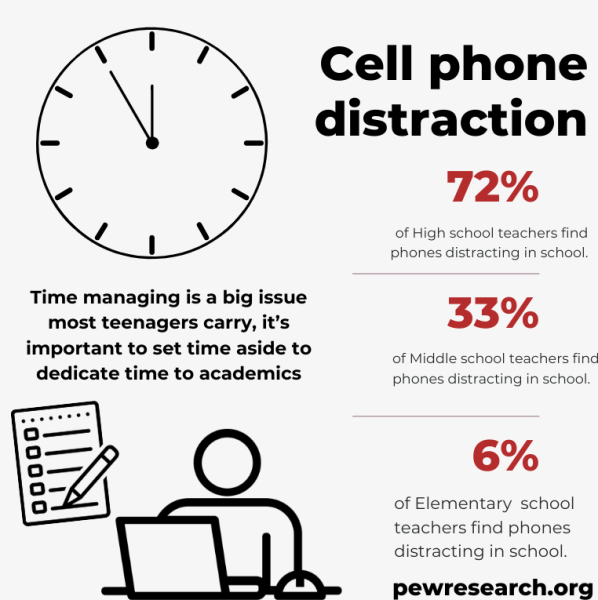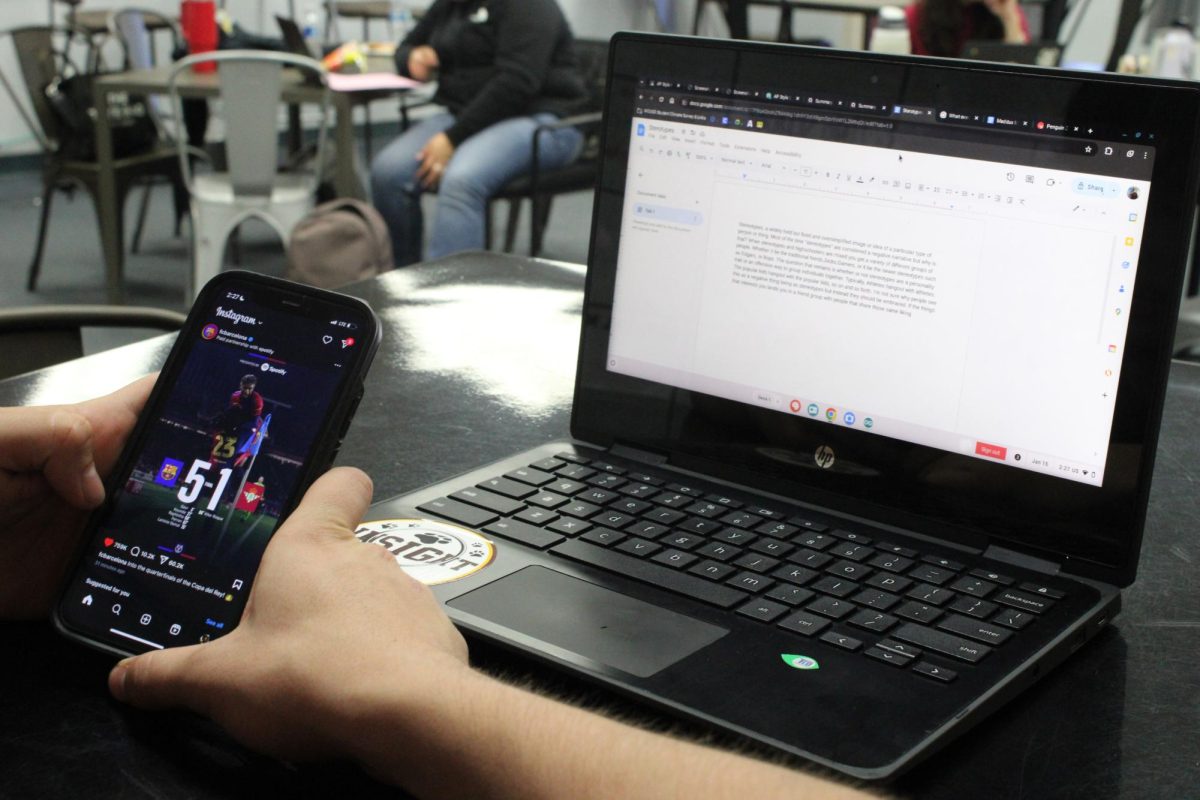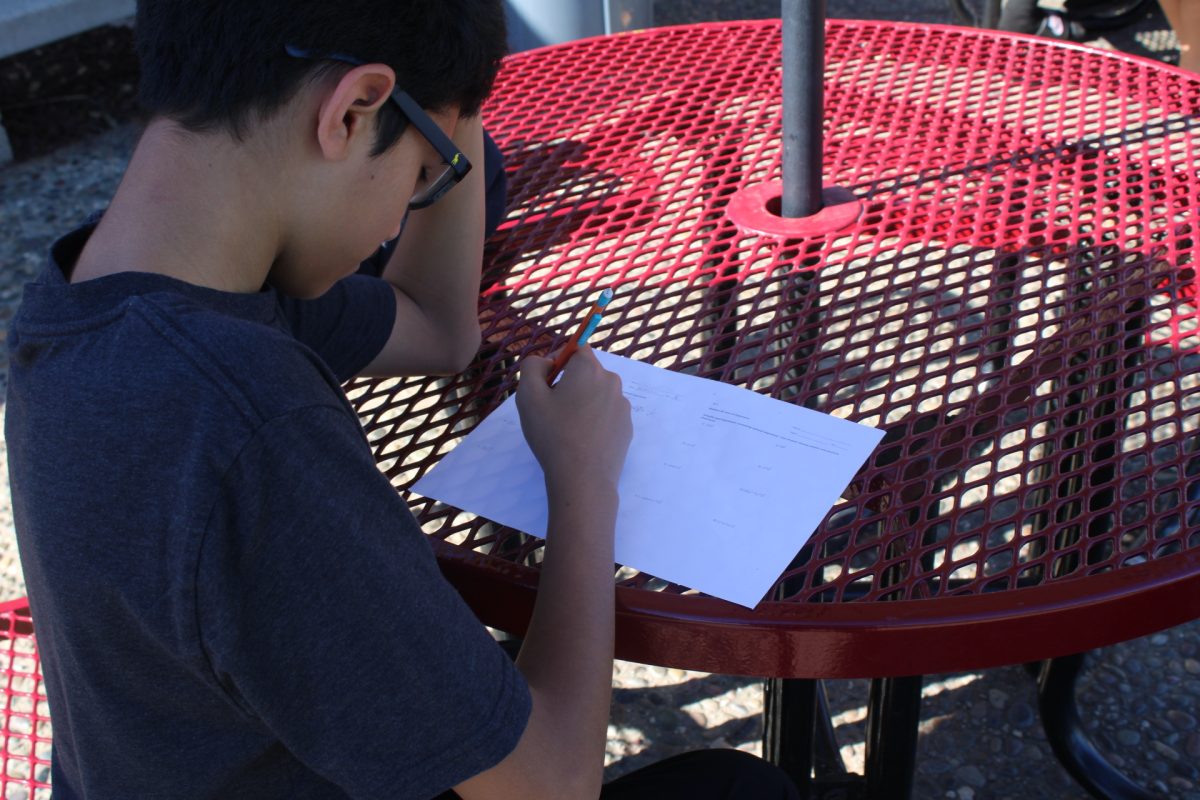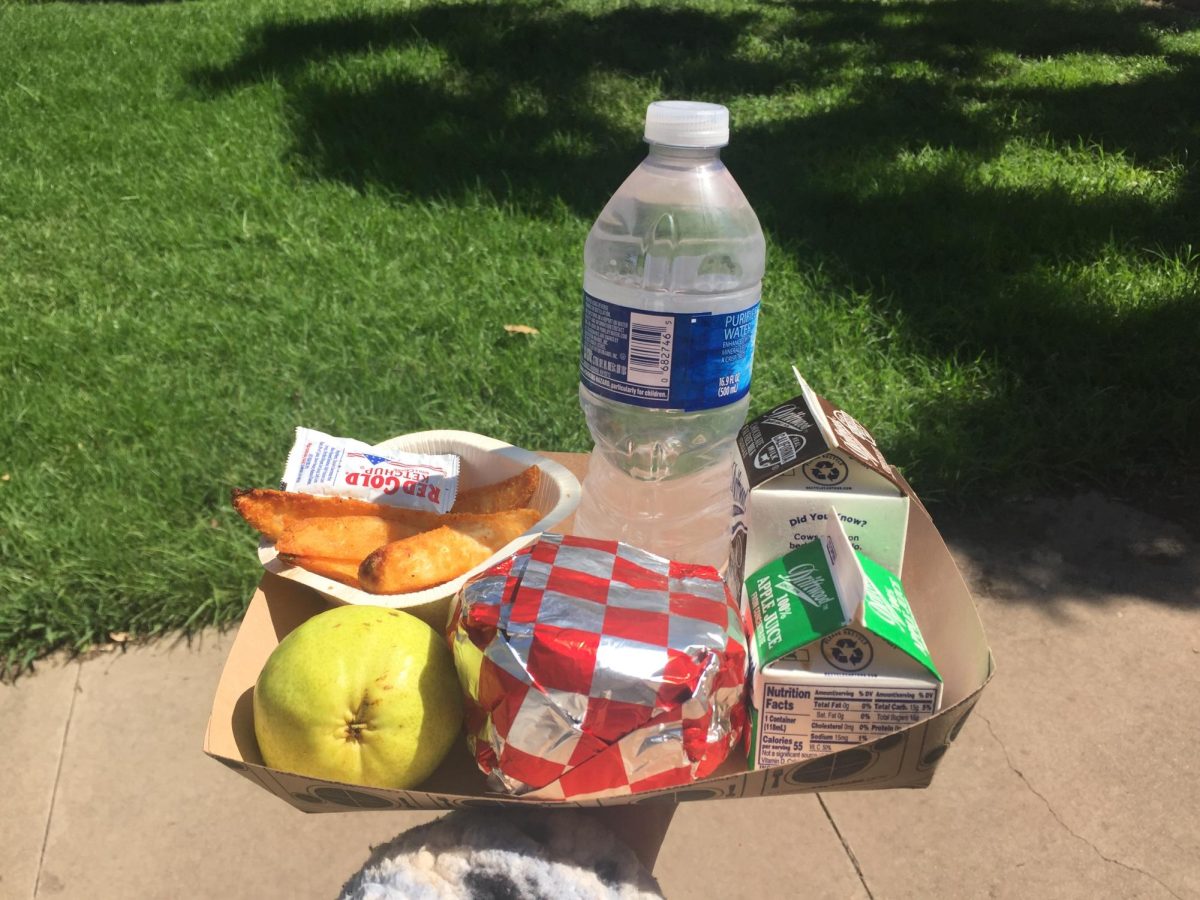Having good grades opens many opportunities for a future career through college and other options. Second semester is the chance for students to recover from a poor end to first semester, but for some it’s not that easy. Getting back on track academically has its own obstacles so those looking to take on this task may consider following the two steps discussed below. Although they may be challenging, they are necessary to ensure better grades for the second semester.
Being focused in class is a significant step in order to be successful; cell phones gradually disturb engagement in school. Therefore, it’s important to avoid being distracted. According to Pew Research Center, a nonpartisan fact tank that informs the public about various issues, 72% of teachers believe that students using phones in class is a major distraction.
Spanish teacher Jennifer Myers has been teaching 23 years in total and has established multiple steps to provide a productive learning environment for her students. One of these steps is prohibiting the use of phones in her class.
“They turn (their phones) in as soon as they come in,” said Myers.
Myers implementation of no phones in class is similar to the new California Bill 3216, Phone-Free School Act, signed by Governor Gavin Newsom, which requires schools to limit the use of phones by July 1, 2026.
Sophomore Nathan Isaac wasn’t content with his grades from last semester as he ended up with Cs and a D. He wants to attend any University of California (UC) or Cal State University (CSU) school so going into this semester he is taking the initiative to achieve a better outcome this semester. Isaac is working towards his goal by managing his time after school and completing his homework on time without the use of his cell phone.
“Get off my phone in class, stop messing around and be more focused,” said Isaac, to improve his time management.
Without distractions, one’s focus can improve and the ability to study is easier and allows for a better understanding of the material. This is key to attaining higher test scores, something that Isaac is working towards to fulfill his goal.
“I am going to study more,” said Isaac.
Time management is another key part of success. Procrastination tends to be an issue with many teenagers today. In an investigation on procrastinating, BMC psychology, an open access peer-reviewed journal that manuscripts all aspects of psychology, found that 80% of 927 teens procrastinate for at least an hour a day. Isaac is setting aside a schedule to avoid procrastination and schedules breaks so he won’t get overwhelmed.
“This year, I put schedules like when I can have breaks, like after school like when I’m studying. I can have like, certain break times and like, certain times when I study,” said Isaac.
Procrastination delays a goal. It’s necessary to do assignments on time to ensure the best grade possible.
Despite needing to make all these changes for a better second semester, don’t stress. It’s important to take time for yourself and understand that academics are solely a priority and regardless of how grading works there are always opportunities to redeem yourself. Adopting a negative feeling towards school can hinder progress towards success. Instead, it’s best to maintain a positive attitude and stay resilient. Persistence is key.

(Valeria Aguilar)








